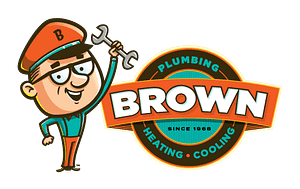Hiring a contractor to do any kind of work on your home can feel like a risk. It shouldn’t, but it often does. You’re committing to spending a substantial amount of money. It’s work that you probably can’t do yourself, and chances are you don’t have the professional expertise to confirm for yourself that it’s done properly. And you’re going to have to live with the outcome.
So how do you mitigate this risk? How do you reassure yourself that you’re hiring the right contractor for the job? And paying a fair amount of money?
Word of Mouth
Most people start with word-of-mouth recommendations. And fair enough, it’s good to hear directly from people you trust about the experiences they’ve had with various contractors. This can be a good way to generate a list of potential businesses with which you might want to work.
Do Your Homework
But in many cases, your friends and family aren’t experts, either. They might not actually know if they received good services for what they paid. They might have been charmed by a second-rate tradesman with good patter.
This is where governmental licenses, surety bonds and insurance come in.
Licensed
The state of Florida requires all sorts of businesses to earn a license in order to operate. A license is essentially a way for the state to say that a company or contractor has demonstrated a minimum required amount of competency in their field.
Not being licensed is a big red flag. Not only does it mean that the contractor hasn’t even bothered to do the bare minimum; it actually means that they’re not even legally allowed to do their work.
All you have to do is ask. Brown’s Florida HVAC company license is CAC1816257.
Bonded
Surety bonds and insurance are two ways for companies to protect their clients from accidents and sub-par work.
A surety bond is a great show of good faith by a company. Surety bonds are lines of credit that can pay clients who can demonstrate that they didn’t get what they paid for. The money is there for the client, but the company will still have to pay back every cent to the bond. It’s a great way to say, “We’re putting our money where our mouth is.”
Insured
And insurance, of course, covers the big what-ifs—especially accidents and injuries. When a contractor is doing work on your property, their accidents can have catastrophic effects on you and your financial wellbeing. Whether it’s serious property damage or an injured worker, you don’t want to be on the hook for paying for those accidents. A contractor’s general liability and worker’s compensation insurance covers you.
When you’re shopping for a contractor, ask them about licenses, bonds and insurance. They’re not automatic signifiers of the best possible work, but they do mean a company is serious about being professional at what they do.


